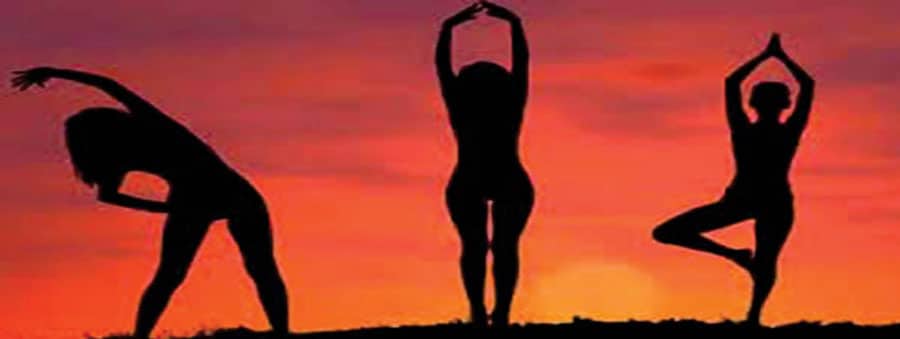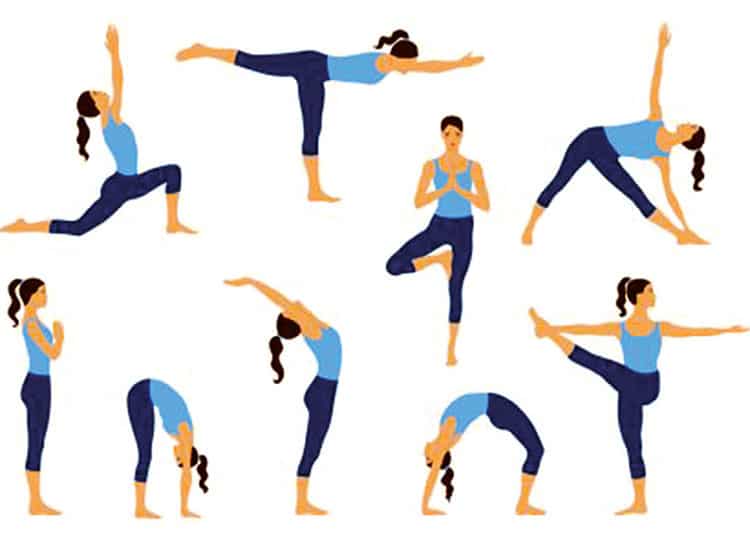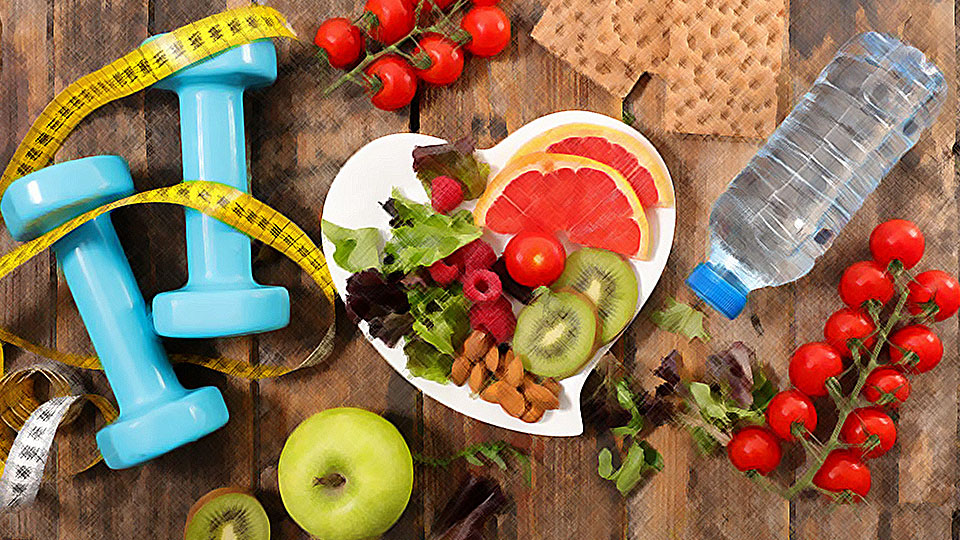By S.N. Tejaswini, Associate Professor, JSS College of Physiotherapy
Women experience unique healthcare challenges and are more likely to be diagnosed with certain unique diseases compared to men. 38 percent of women suffer from one or more chronic diseases, compared to 30 percent of men. As women grow older their health needs change and starts developing chronic problems which are often neglected.
Heart disease is the leading cause of death in women. The risk of heart disease is due to unhealthy lifestyle, like diabetes, hypertension, obesity and lack of physical activity.
Cancer is the second leading cause of death globally. Cancers of the breast, lung, colon, skin and uterus is often common in many women. Approximately 70 percent of deaths from cancer occur in low and middle income countries. High body mass index, low fruit and vegetable intake, lack of physical activity, tobacco use, and alcohol use. Tobacco use is the most important risk so raising awareness about symptoms and risk factors for particular cancers is an important component of prevention and early diagnosis.
Weight gain and disorders
Less activity plus the natural loss of muscle mass can both contribute to a slower metabolism as you get older. Weight gain usually happens due to various reasons like hypothyroidism, polycystic ovary syndrome, depression and anxiety, insomnia, perimenopause, dehydration, ovarian cancer, diabetes, and pregnancy-induced weight gain. Metabolic disorders like diabetes, hypertension, and obesity increase your risk of heart disease and stroke. Stress, unhealthy eating habits, lack of physical activity can even more prone for worsening the problem. If you have metabolic syndrome or any of its components, aggressive lifestyle changes can delay or even prevent the development of serious health problems.
Depression: Women are twice as likely to experience depression than men. The condition will affect one in five women at some point in their lives, most commonly between ages 40 and 59. Depression can impact every area of a woman’s life in her physical health, social life, relationships, career and sense of self-worth due to various factors such as reproductive hormones, social pressures and unique female response to stress. However, women should understand that and it’s important to know you are not alone.
Osteoporosis is a disease in which bones become fragile and more likely to break and is most prevalent in post-menopausal women. Women tend to have smaller, thinner bones than men. Estrogens hormone in women that protects bones decreases with strength when women reach menopause, which can cause bone loss. Therefore, the chance of developing osteoporosis increases as women reach menopause. Early menopause can cause early bone loss and disease well before the age of 65. Women lose more than 30 percent of their bone mass within five years after menopause. Additionally, inadequate physical activity (weight-bearing exercise), smoking and drinking too much alcohol increase your risk.

Prevention and wellness
To prevent disease and promote healthy behaviours, initiatives related to promoting healthy lifestyles which include eating nutritious foods, exercising, maintaining a healthy weight and reducing risky behaviours can help prevent many chronic diseases. Women represent the cornerstone of a family’s overall health, ensuring they have access to quality care also can lead to improved health for children and families.
Access for health: Take control by talking with your doctor about your risk factors. If you have health problems like high cholesterol, high blood pressure or diabetes that increase your risk of heart disease and stroke, follow your doctor’s treatment recommendations.
Healthy lifestyle diet
Eat a healthy diet rich in calcium and Vitamin D. Vitamin D is essential to absorbing calcium. Eating plenty of vegetables, fruits, lean protein and whole grains and limiting saturated fat and salt in your diet get at least 30 minutes a day of weight-bearing physical activity. Get outdoors in the sun. If you feel constantly on the edge or under assault, your lifestyle habits might suffer and so might your immune system. Take steps to reduce stress or learn to deal with stress in healthy ways.
Barriers to physical activity
Understanding common barriers to physical activity and creating strategies to overcome them may help make physical activity part of daily life. People experience a variety of personal and environmental barriers to engaging in regular physical activity. Some of the personal barriers to physical exercise that women face includes family responsibilities, cultural or social beliefs, economic or employment status, level of education, lack of time, willpower, fear of injury, lack of skill, confidence in their ability to be physically active, lack of resources for recreational facilities and of exercise equipment and also the environmental factors such as traffic and pollution may also have an effect. The top three barriers to engage in the physical activity across the adult lifespan are time, energy and motivation.
Develop a set of regular activities that are always available like indoor cycling, aerobic dance, indoor swimming, calisthenics, stair climbing, rope skipping, mall walking, dancing and gymnasium games. Engage daily routine activities as part of exercise like climb the stairs, walk to buy something from shop, involve in aerobic exercise.
Look upon your retirement as an opportunity to become more active instead of less. Spend more time gardening, walking, and playing with your grandchildren. Now that you have the time, make regular physical activity a part of every day. Go for a walk every morning or every evening before dinner. Involve yourself to an exercise cycle, reading a favourite book or magazine.
Benefits of physical activity
- Improves muscular and cardio respiratory fitness.
- Improves bone and functional health.
- Reduces risk of hypertension, coronary heart disease, stroke, diabetes, various types of cancer (including breast cancer and colon cancer) and depression.
- Reduces the risk of falls as well as hip or vertebral fractures.
- Fundamental to energy balance and weight control.

Your body hears everything that your mind says so don’t limit your challenges, challenge your limits. Stay fit stay healthy.
Suggestions for overcoming physical activity barriers
- Monitor your daily activities for one week. Identify at least 30-minute time slots you could use for physical activity.
- Add physical activity to your daily routine. For example, walk or ride your bike to work or shopping, organise school activities around physical activity, exercise while you watch TV, park farther away from your destination, etc.
- Select activities requiring minimal time, such as walking, jogging, or stair climbing.
- Explain your interest in physical activity to friends and family. Invite friends and family members to exercise with you. Plan social activities involving exercises.
- Schedule and convince yourself that, physical activity will increase your energy level; then, try it. Develop new friendships with physically active people. Join a group, such as hiking club.
- Motivate yourself and involve in physical activity as regular part of your daily or weekly schedule and write it on your calendar.
- Do not hesitate for injury; learn how to exercise appropriately considering your age, fitness level, skill level, and health status. Choose activities involving minimum risk.
- Select activities requiring no new skills, such as walking, climbing stairs, or jogging jump rope, do callisthenics, ride a stationary bicycle.
- Identify inexpensive, convenient resources available in your community (community education programmes, park and recreation programmes, work site programmes, etc.








Recent Comments